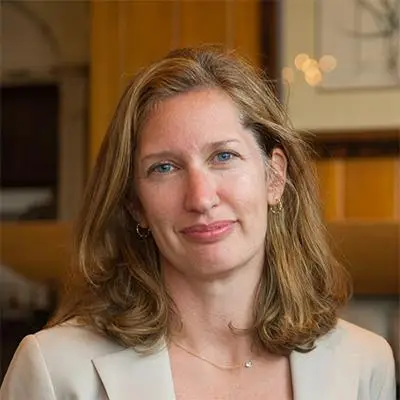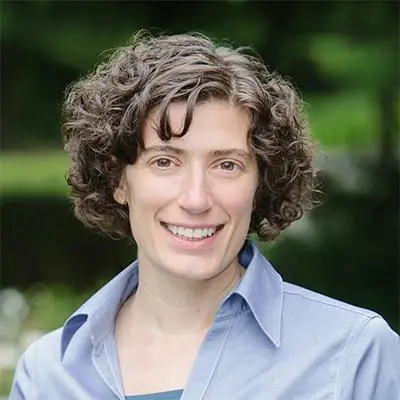At CRPE we have a tradition of looking around the corner. We worry about problems that may be coming and contemplate new ways to get ahead of them. We posit and test systemic changes to allow families and educators to be successful. This kind of thinking has shaped our research agenda since 1993, leading us to the portfolio strategy, new proposals for ensuring money follows students, and efforts to promote innovation and excellence at scale.
To mark of CRPE’s 25th anniversary, we used this tradition to take stock of what progress has been made in that time and how CRPE can best contribute to the future. What, we wondered, would it take to reinvent public education to produce the next generation of American geniuses, problem solvers, and creators of opportunity?
On one hand, those seeking transformational change have been wildly successful. The achievement gains in some cities are remarkable. Public school choice has become a new normal in many cities. And parents and students from all walks of life are getting more equal access to schooling that is higher quality, safer, and better suited to their preferences.
Still, progress toward these goals has plateaued or stalled out in too many communities. Giving parents the opportunity to choose schools hasn’t dissolved the lines of segregation in our cities. The politics of choice, accountability, and educator autonomy (essential components of the portfolio idea) are volatile, hamstrung by community backlash. Hard-working teachers are exhausting themselves trying to overcome all of the challenges created by intergenerational poverty and students’ complex learning needs. Instructional offerings too often do not meet community needs and are not geared toward the future economy. As the leader of one charter school management organization told us, we’ve been executing really well, based on the wrong North Star.
We believed new ideas for overcoming these barriers were needed, and that need seemed more urgent as we looked to the body of research around what skills and knowledge students will need to succeed in a world and economy that are predicted to change. Our 25th anniversary report, Thinking Forward, pointed to:
- Greater urgency for students to develop skills that cannot be replaced by artificial intelligence: analytic problem solving, teamwork, and caring, in addition to a more urgent case for basic academic competencies.
- More focus on flexible and effective career preparation for every K–12 student.
- A much more urgent case for equitable education. Economists predict that many new jobs will replace the old ones, but without proactive work middle-class jobs will decrease, threatening to increase the income divide in America.
- Demand for new entrepreneurs and problem solvers—as many as we can find, and from all walks of life.
To us, all of this implies the need for a more nimble and customized education system that can adequately flex for the changes ahead. Just as we’d imagined school districts that might not deliver all solutions themselves under a portfolio approach, we started to imagine schools as institutions that might adapt and partner with others in their communities to provide a much greater array of options to meet individual student needs. Students within the same school might follow very different courses of study and get a different set of support, depending on their interests, social and emotional needs, talents, and levels of preparation. But just as with our earlier research agenda, we saw both promise and peril—and thus new sets of questions to be resolved.
In the past, we at CRPE wondered what it would take to move from a school system to a system of schools that achieved excellent equal opportunity and innovation. Now we wonder what it would take to move from a system of schools to a system of learning opportunities that ensures every student is prepared to solve the problems of the future.
We imagined a new definition of “school” in which students with very diverse needs and interests could get unlimited access to whatever learning, social, and developmental opportunities would propel them forward. We imagined school districts, charter management organizations, and community organizations that would both guarantee children achieved advanced knowledge and cognitive skills, but also leverage community assets—industry-driven apprenticeships, college coursework, summer enrichment opportunities, and therapeutic services—to meet their students’ needs.
All of this seemed easy to imagine but difficult to realize, especially in a way that prioritizes equitable opportunity and is genuinely community driven and politically sustainable. To learn what it would take, last spring CRPE launched the Big Think Network. The Network brings together six pioneering organizations that are trying to shift systems and programs to maximize the talents, interests, and needs of students, families, and communities.
Each of the six organizations in our network is organizing its efforts around a specific problem of practice that is 1) locally driven, 2) puts student needs first, and 3) pushes the boundaries of what’s possible in the existing education delivery model. With CRPE as a research partner, they will test bold new ideas for realizing their ambitious goals.
Edgecombe County Public Schools, in North Carolina, is working on new ways to help teachers facilitate grade level-appropriate (or higher) learning experiences that enable every student to deeply explore a variety of topics and ideas, achieve mastery, build resilience, and develop agency.
LEANLAB Education, based in Missouri, is supporting breakthrough education innovations by working with parents, students, teachers, and administrators to surface problems, and then working with entrepreneurs to design solutions, test their designs in schools, and bring the most promising solutions to scale.
ReSchool Colorado is capturing the key elements of their Learner Advocate Network, which helps parents and students navigate both in-school and out-of-school learning opportunities, and partnering with other interested community based organizations to use and adapt the program for their own contexts.
Teach For America Washington, based in Seattle, is using different types of student feedback to measure broader outcomes (that assessments do not reliably measure), predict student learning outcomes, and provide nuanced, actionable feedback to educators. They intend to use this feedback to help teachers provide more personalized, equitable learning experiences to their students.
The Rural Alliance, in Washington state, is working to ensure that all children from birth to age five have access to equitable and innovative early learning opportunities, with rural school districts serving as a hub.
The International Association of Colearning Communities, based in Connecticut, is creating a framework for “colearning” that can be adapted for new contexts. They are beginning with a partnership with an existing group of families of color in Waterbury, Connecticut, to build their homeschool network into a full colearning community.
These organizations will work together for the next year, cheering and challenging each other to push harder and think more boldly in their efforts to build a more just and responsive learning system. At the end of our cycle, we hope these organizations will have achieved new breakthroughs to transform learning in their own communities and that they each become models for others to learn and borrow from.
We also expect to identify a new “North Star” to guide the next generation of innovators, and a road map for what policy leaders and researchers can do to ensure their work leads to a better public education system.






